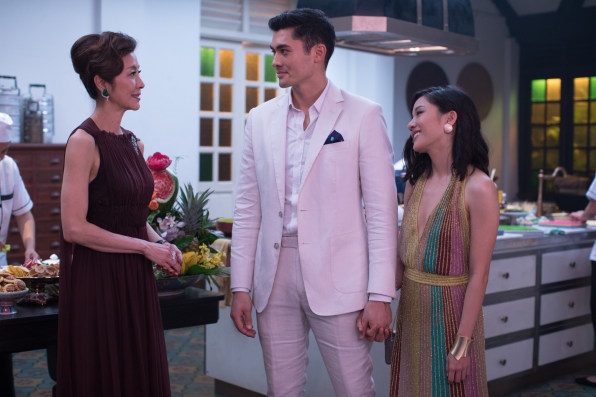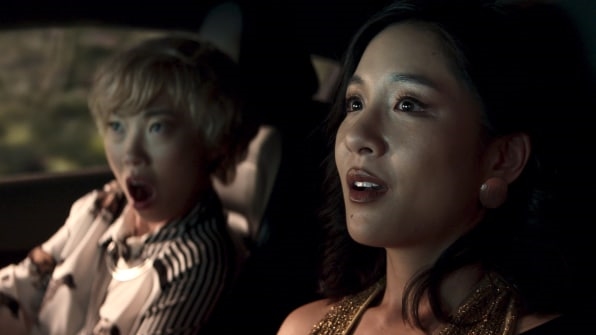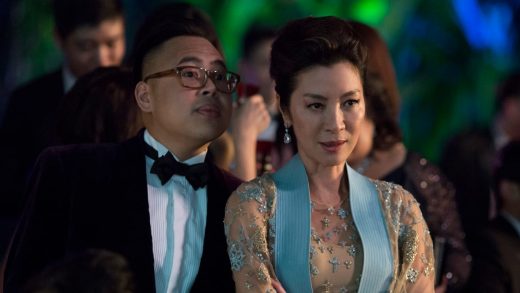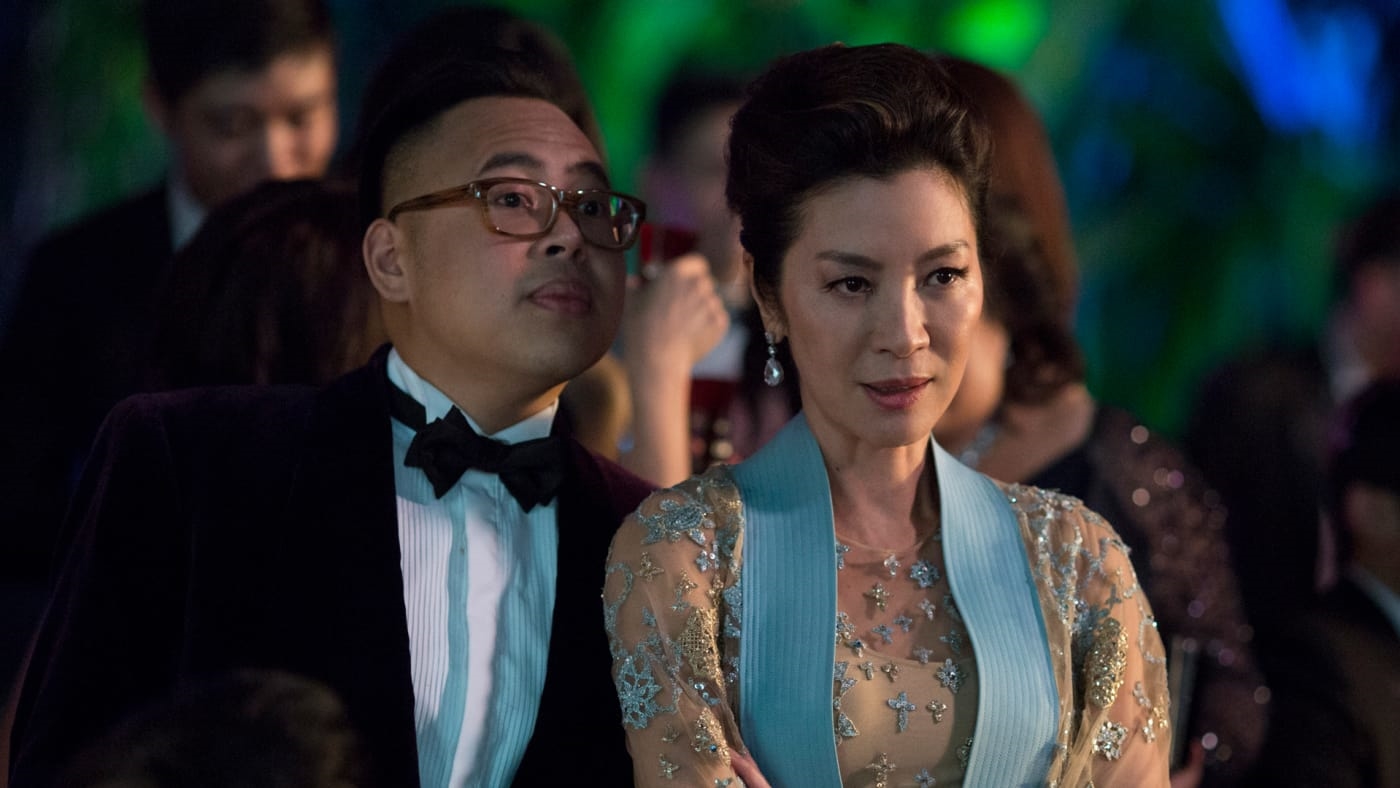“Crazy Rich Asians” is, indeed, Asian enough for us
Crazy Rich Asians is the first Hollywood film to feature an all-Asian cast in 25 years. As our Fast Company colleague Joe Berkowitz recently wrote, the film, much like Black Panther, is something of “a litmus test for whether audiences will come out for a film created across-the-board by Asian Americans, and with a culturally reflective storyline.” The response so far has been largely positive. The film scored 92% on Rotten Tomatoes, grossed $5 million on its opening day, and is reportedly on track to make more than $25 million this weekend.
But some critics have argued that the film–an adaptation of Kevin Kwan’s bestselling novel by the same name–is not an accurate representation of Singapore and Asian culture, nor does it do enough to improve diversity in Hollywood. As Asian women, we acknowledge and agree that Crazy Rich Asian presents a very narrow, exaggerated sliver of a specific type of Asian experience. It’s also funny, touching, and a visual feast. We believe criticizing the film or the cast for not being “Asian” enough is unproductive and potentially harmful to those voices that Crazy Rich Asians didn’t represent. Here’s why.
“You can’t just force characters that don’t fit into the storyline.”
Crazy Rich Asians is over-the-top, and mostly showcases the opulent upper crust of Singapore. But the storyline centers on an extremely wealthy Singaporean family and their attitudes towards a Chinese American who might be marrying into their clan. So, of course, the movie focuses on representing their specific experience. You can’t just force characters that don’t fit into the storyline.
Yes, the fact that South Asians and Southeast Asians are portrayed as domestic helpers and security guards is unfair and not wholly representative of Asia or Singapore. I’m of Indonesian heritage, and this stereotype infuriates me. I agree that we still have a lot of work to do when it comes to bridging class and racial divide among Asians, and this film arguably doesn’t do that.
But here’s what this film does do (at least for this Indonesian-born journalist who grew up in New Zealand and now lives in the U.S.): It portrays Asian and Asian American characters as complex, flawed human beings with their own unique stories to tell–stories that are worthy of screen time and for the most part, not relegated to some stupid stereotype Hollywood has generally imposed on Asian characters. I would love to see more representation of strong South Asian and Southeast Asians characters who are not cooks, helpers, and drivers. But I know that we’re not going to get there by criticizing the “Asian-ness” of a movie like this. That devalues the story the film is trying to tell and suggests a certain kind of Asian experience isn’t worth exploring. To get Hollywood to tell stories that encompass more than one Asian perspective requires us to show them that we’re hungry for those stories to be told, which really means giving them financial incentive. That starts with supporting a movie like Crazy Rich Asians. –Anisa Purbasari Horton

“Isn’t this exactly the experience of being Asian American?”
Midway through Crazy Rich Asians, Michelle Yeoh–who plays the disapproving mother of Constance Wu’s love interest and would-be husband–tells Wu’s character, “You will never be enough.” She may as well be speaking for the audience.
This is a movie that, in so many ways, is decidedly Asian. When Nick Young brings his girlfriend home to meet his family, aunties gossip about how he’s ready to propose. A key scene between his mother and Wu’s character, Rachel Chu, takes place over a game of Mahjong (with Nick noticeably missing). Rachel is an econ professor who seamlessly code-switches from English to Chinese.
Still, she’s not quite Asian enough. Rachel is, after all, a Chinese American raised by a single mother. She believes in things like following one’s passion and the pursuit of happiness. How can she understand what tradition and duty means to a family like the Youngs?
Isn’t this exactly the experience of being Asian American? You’re both too Asian to be truly American and too American to be truly Asian. Some people see you as white adjacent–others see you as foreign. Like Rachel, I’m not Indian enough to my family in India. Here, it depends who you ask: I’m too Indian to some people and not Indian enough to others. Like Crazy Rich Asians, Asian Americans are expected to be many things at once. We’re expected to have the right degrees, to achieve, to assimilate where necessary–but also to prioritize family, to embrace our cultural values, to speak our native language.
This movie may never be “enough” because, well, it’s not. It’s the first Hollywood film in years that puts Asians and Asian Americans front and center. There was so much in this film I could relate to, though the only people on screen who looked like me opened doors for the eponymous rich Asians and stood guard outside mansions. But can a movie about outrageously rich Chinese Singaporeans really mean something to every Asian, a group that holds so many ethnic groups and languages and skin tones within it? Isn’t it unfair to expect that?
This movie shouldn’t have to represent all of us, and it can’t. Crazy Rich Asians is set in Singapore, but at its core, it is a movie for Asian Americans. That doesn’t make it any less Asian. In fact, if there’s one thing that is less Asian about this movie, it may well be its predictable, cheery Hollywood ending. Here’s to many more. –Pavithra Mohan

“It is awesome to see someone who looks like me on the big screen”
Who says Crazy Rich Asians is not Asian enough?
It was Asian enough for me because for the first time, I was watching a Hollywood-made movie with an all-Asian cast–a movie whose story centered on an Asian family and was adapted from a book written by an Asian author.
Have I been treated unfairly by a boyfriend’s mother because I was not their kind of Asian? Absolutely! (Two now-ex boyfriends, in fact.) I was never going to be good enough because I wasn’t the right shade of Asian. I didn’t come from the same background, go to an Ivy League school, or have the right last name.
I became an American citizen, but to some people, I’m not American enough because I was not born in the U.S. I’m also an immigrant, and to some people that makes me less Asian because I left my motherland.
The first few scenes of the movie in the hawker stalls of Singapore is how I break the ice with new friends. Food is always involved. That’s so Asian. The Filipino help in uniforms? So Asian. The gay cousin who gave Rachel a makeover? So Asian. Throwing the biggest event of the year for the society pages and aspiring to be a part of that? So Asian!
I’m not saying that the movie answers all the identity questions that we’ve faced. I’m saying it is awesome to see someone who looks like me on the big screen. Watching Crazy Rich Asians, I could recognize some of my friends. I could relate to the familial obligations. I felt the hurt of being the second choice of someone you love. I laughed at the extravagant silliness of new Asian money. I relived being bombarded with questions by all the Asian aunties!
I hope the movie breaks a box office record this summer so Hollywood finally recognizes that there is an audience for stories like Crazy Rich Asians. I hope this realization will make Hollywood hire more people of Asian descent so they have the proper storytellers and the right voices representing from the inside. If it had to start with our people making fun of ourselves in order to break ground, then so be it. It’s a start, and we’re only going to move forward from here. –Cia Bernales
Related Video: Does “Crazy Rich Asians” Live Up To The Hype? We React
Fast Company , Read Full Story
(26)



